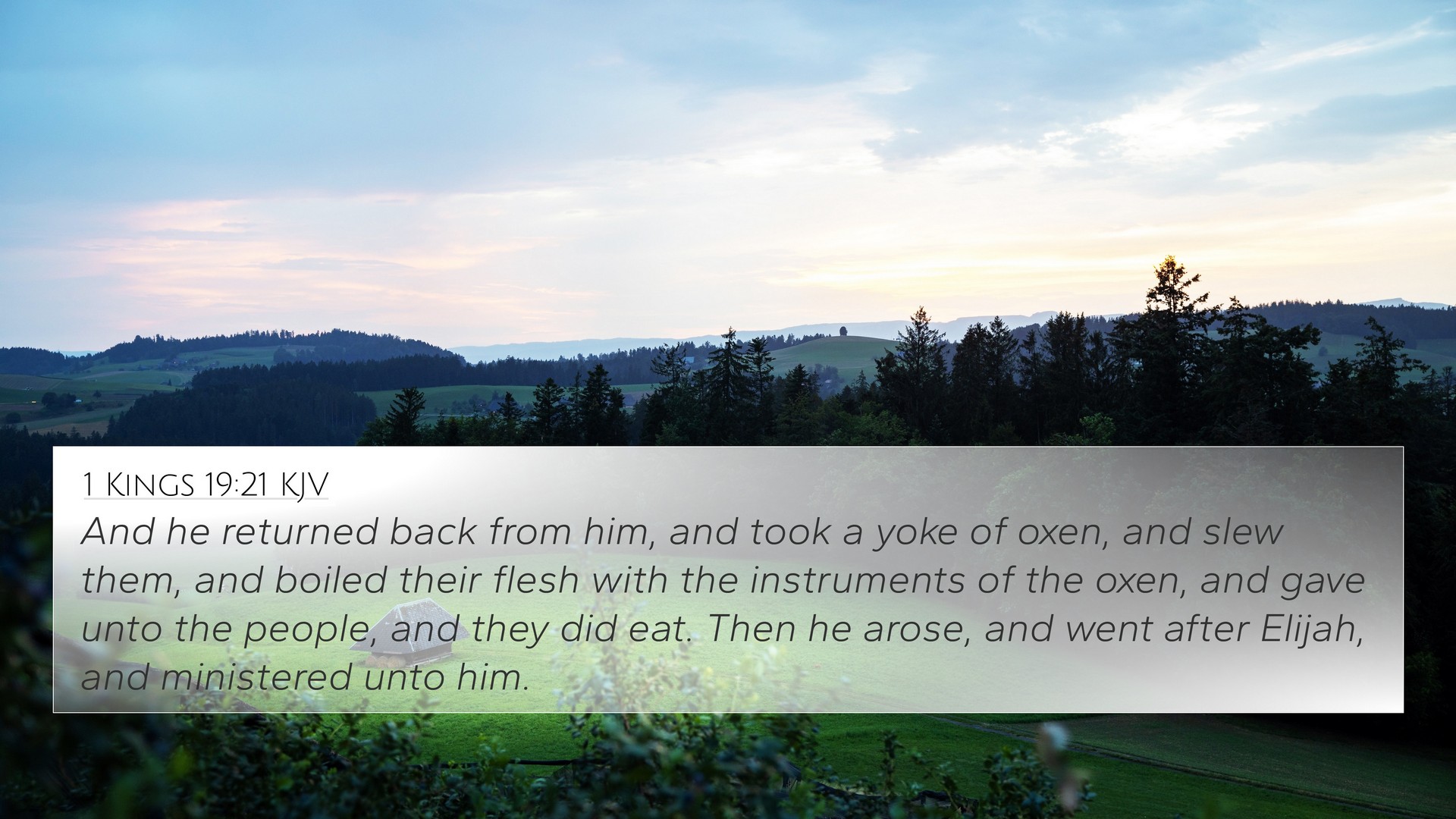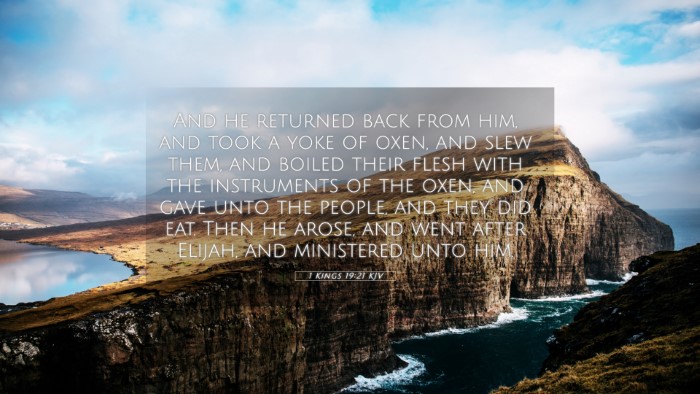Old Testament
Genesis Exodus Leviticus Numbers Deuteronomy Joshua Judges Ruth 1 Samuel 2 Samuel 1 Kings 2 Kings 1 Chronicles 2 Chronicles Ezra Nehemiah Esther Job Psalms Proverbs Ecclesiastes Song of Solomon Isaiah Jeremiah Lamentations Ezekiel Daniel Hosea Joel Amos Obadiah Jonah Micah Nahum Habakkuk Zephaniah Haggai Zechariah Malachi1 Kings 19:21 Similar Verses
1 Kings 19:21 Cross References
And he returned back from him, and took a yoke of oxen, and slew them, and boiled their flesh with the instruments of the oxen, and gave unto the people, and they did eat. Then he arose, and went after Elijah, and ministered unto him.
Uncover the Rich Themes and Topics of This Bible Verse
Listed below are the Bible themes associated with 1 Kings 19:21. We invite you to explore each theme to gain deeper insights into the Scriptures.
1 Kings 19:21 Cross Reference Verses
This section features a detailed cross-reference designed to enrich your understanding of the Scriptures. Below, you will find carefully selected verses that echo the themes and teachings related to 1 Kings 19:21 KJV. Click on any image to explore detailed analyses of related Bible verses and uncover deeper theological insights.
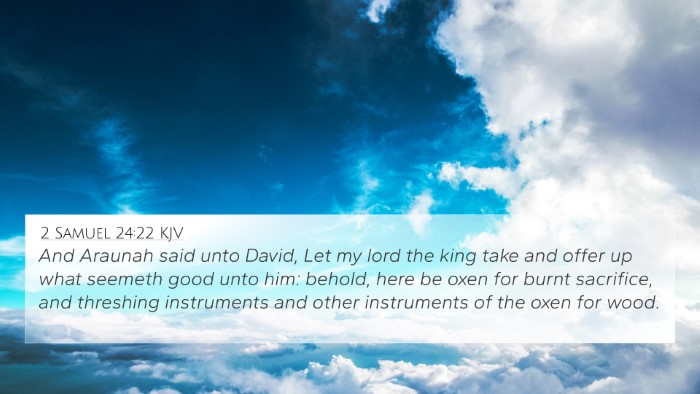
2 Samuel 24:22 (KJV) »
And Araunah said unto David, Let my lord the king take and offer up what seemeth good unto him: behold, here be oxen for burnt sacrifice, and threshing instruments and other instruments of the oxen for wood.
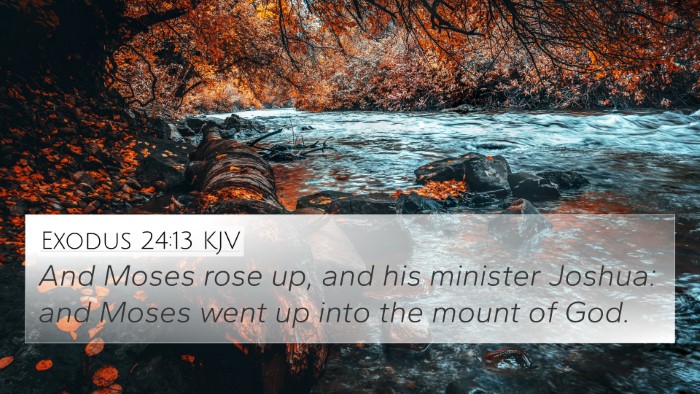
Exodus 24:13 (KJV) »
And Moses rose up, and his minister Joshua: and Moses went up into the mount of God.
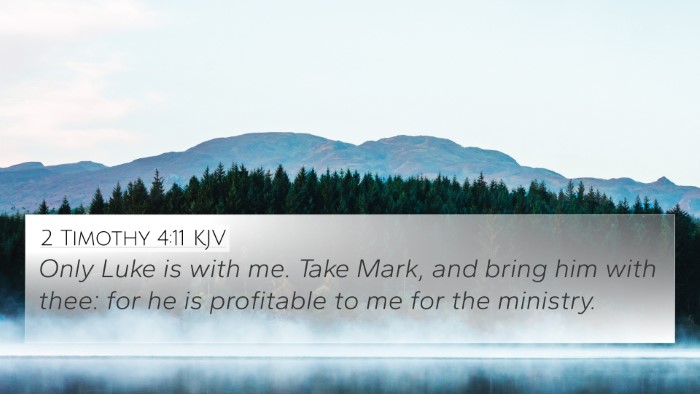
2 Timothy 4:11 (KJV) »
Only Luke is with me. Take Mark, and bring him with thee: for he is profitable to me for the ministry.
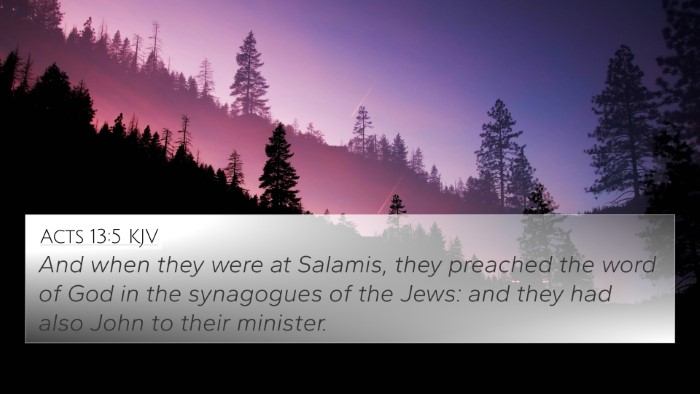
Acts 13:5 (KJV) »
And when they were at Salamis, they preached the word of God in the synagogues of the Jews: and they had also John to their minister.
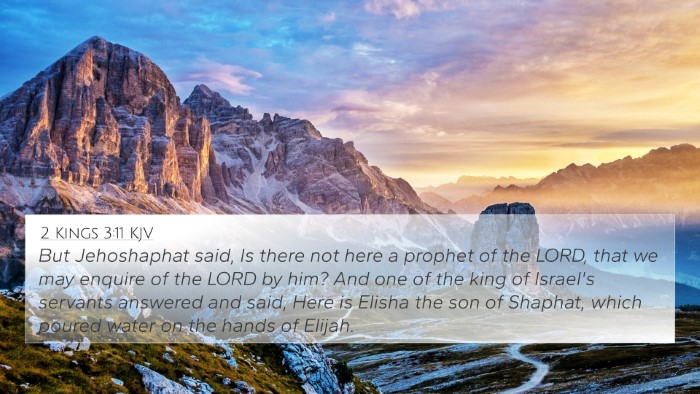
2 Kings 3:11 (KJV) »
But Jehoshaphat said, Is there not here a prophet of the LORD, that we may enquire of the LORD by him? And one of the king of Israel's servants answered and said, Here is Elisha the son of Shaphat, which poured water on the hands of Elijah.
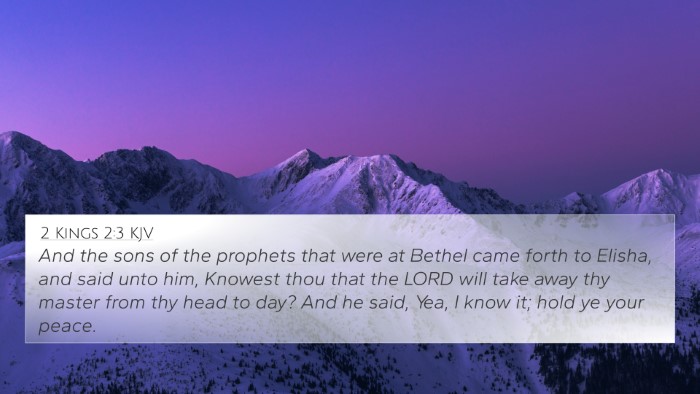
2 Kings 2:3 (KJV) »
And the sons of the prophets that were at Bethel came forth to Elisha, and said unto him, Knowest thou that the LORD will take away thy master from thy head to day? And he said, Yea, I know it; hold ye your peace.
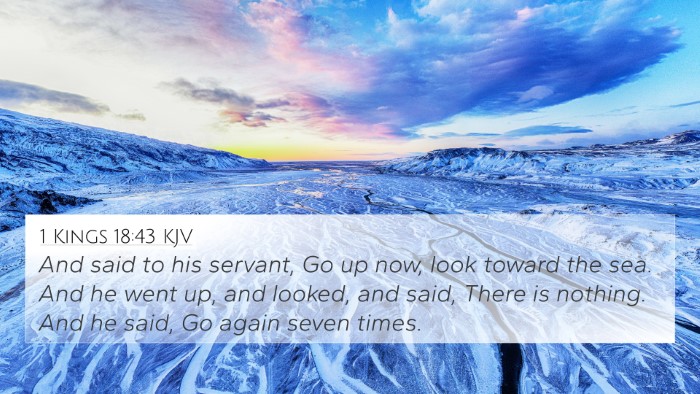
1 Kings 18:43 (KJV) »
And said to his servant, Go up now, look toward the sea. And he went up, and looked, and said, There is nothing. And he said, Go again seven times.
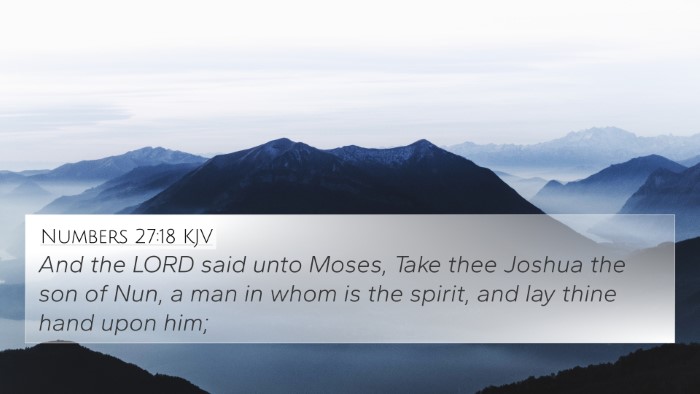
Numbers 27:18 (KJV) »
And the LORD said unto Moses, Take thee Joshua the son of Nun, a man in whom is the spirit, and lay thine hand upon him;
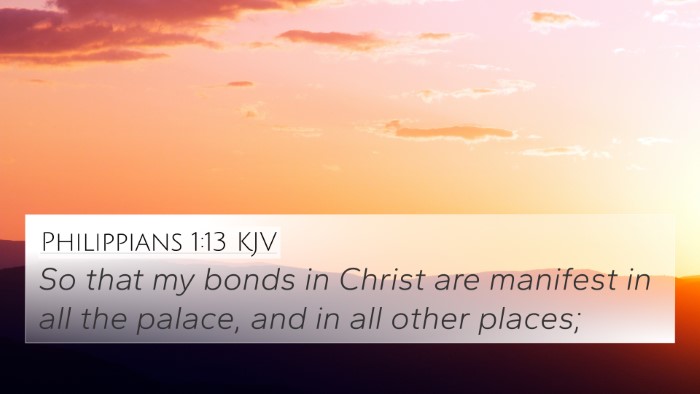
Philippians 1:13 (KJV) »
So that my bonds in Christ are manifest in all the palace, and in all other places;
1 Kings 19:21 Verse Analysis and Similar Verses
Understanding 1 Kings 19:21
Verse: 1 Kings 19:21 - "So Elisha turned back from him, and took a yoke of oxen, and slew them, and boiled their flesh with the instruments of the oxen, and gave unto the people, and they did eat. Then he arose, and went after Elijah, and ministered unto him."
Summary of Insights
The narrative of 1 Kings 19:21 is pivotal in the calling of Elisha, the prophet who would succeed Elijah. This verse illustrates Elisha's readiness to leave his former life and embrace his divine calling. Highlighted in this passage are themes of sacrifice, commitment, and the significance of prophetic ministry.
Key Themes and Interpretations
- Significance of Sacrifice: Elisha’s slaughtering of the oxen signifies the severing of ties to his former life as a farmer, emphasizing the necessity of total dedication to God's calling.
- Act of Farewell: By preparing a feast for the people, Elisha expresses gratitude and farewell to his former life, which implies the importance of community and relationship in moments of transition.
- Commitment to Service: The act of ministering to Elijah portrays Elisha's commitment and readiness to learn and serve, which is essential for anyone entering into prophetic ministry.
Commentary Insights
The following insights synthesize the interpretations from prominent public domain commentaries:
Matthew Henry's Commentary
Henry emphasizes the desperation in Elisha’s act of burning his plowing equipment. This decisive action illustrates a complete abandonment of his past pursuits to begin the sacred work of a prophet. Henry mentions the importance of leaving behind worldly occupations when called into divine service.
Albert Barnes' Notes
Barnes points out that Elisha’s actions symbolically demonstrate the break from a life based on material gain to a life devoted to spiritual purpose. The offering of the meat to the community also reflects the depth of Elisha's character, showing he values his relationships and seeks to bless others through his transition.
Adam Clarke's Commentary
Clarke observes the cultural nuances behind Elisha's actions, noting how such a farewell feast is a customary practice indicating a significant change in one’s life. He connects Elisha’s story to themes of divine calling and the faithful response that characterized a true servant of God.
Bible Verse Cross-References
This verse resonates deeply with several other passages in the Bible that cover similar themes of divine calling and sacrifice:
- Luke 9:62: "But Jesus said unto him, No man, having put his hand to the plough, and looking back, is fit for the kingdom of God."
- Matthew 4:20: "And they straightway left their nets, and followed him."
- 1 Samuel 10:24: "And Samuel said to all the people, See ye him whom the Lord hath chosen, that there is none like him among all the people? And all the people shouted, and said, God save the king!"
- Philippians 3:13-14: "Brethren, I count not myself to have apprehended: but this one thing I do, forgetting those things which are behind, and reaching forth unto those things which are before, I press toward the mark for the prize of the high calling of God in Christ Jesus."
- Exodus 3:10: "Come now therefore, and I will send thee unto Pharaoh, that thou mayest bring forth my people the children of Israel out of Egypt."
- Mark 10:28: "Then Peter began to say unto him, Lo, we have left all, and have followed thee."
- Isaiah 6:8: "Also I heard the voice of the Lord, saying, Whom shall I send, and who will go for us? Then said I, Here am I; send me."
Comparative Bible Verse Analysis
When examining 1 Kings 19:21 in relation to the cross-referenced scriptures, we see a clear theme of individuals responding to God’s call. Each passage represents a moment in which the recipients abandon their current lives for a greater purpose. This showcases the transformative nature of divine encounters that endure throughout the biblical narrative.
Scriptural Cross-Referencing Tools
To delve deeper into the connections within scripture, consider using the following tools:
- Bible Concordance: A reference tool to locate specific scripture based on keywords.
- Bible Cross-Reference Guide: Helps identify related verses for comparative study.
- Cross-Reference Bible Study Methods: Approaches designed for tracing themes across various books of the Bible.
- Comprehensive Bible Cross-Reference Materials: Detailed resources for in-depth scriptural exploration.
- Bible Chain References: Connects verses thematically and contextually.
Identifying Connections Between Old and New Testament
The relationship between Elisha's calling and the New Testament disciples’ response to Jesus underscores the continuity of God’s redemptive plan. By examining these links, readers can better understand how themes of sacrifice and divine calling traverse across the biblical timeline.
Conclusion
1 Kings 19:21 serves as a profound reminder of the cost of discipleship, the importance of community, and the transformative nature of heeding God’s call. Through the lens of public domain commentaries and associated cross-references, we gain a deeper understanding of the rich theological implications present in this singular verse.
